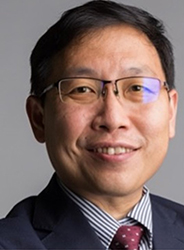ITC-CSCC 2025
July 7(Mon) – 10(Thu) / Chung-Ang University, Seoul, South Korea
Program
-
Full-Paper Submission Begin
February, 2025 -
Notification of Acceptance
March 31, 2025April 11, 2025 -
Notification of Paper Acceptance
May 15, 2025 -
Camera-Ready Paper Submission Deadline
May 31, 2025
TODAY 2025. 04. 05
ITC-CSCC 2025
D-93
Plenary Talks
Spatial Audio Intelligence: From Representation to Understanding and Control of Auditory Environments
Presenter

Prof. Woon-Seng Gan
- Nanyang Technological University, Singapore
Abstract
The integration of sensing, processing, and sound emission within IoT devices has enabled efficient and economical deployment of intelligent audio sensors in urban environments. Devices like the Audio Intelligence Monitoring at the Edge (AIME), deployed in Singapore, operate continuously, adapting to varying conditions and complementing CCTV systems by providing real-time aural data. This data facilitates effective sound management strategies.
This presentation explores the requirements for intelligent sound sensing, leveraging deep learning to extract critical insights such as noise type, source direction, sound pressure, and event frequency. We will introduce deep-learning-based techniques for active noise control, including reducing residential noise intrusion and generating 'acoustic perfumes' to mask unwanted urban sounds, all within an edge-cloud framework. This soundscape intervention device developed in Singapore, designed to enhance urban soundscapes by dynamically sensing ambient noise, selecting natural sound maskers, and adjusting in real-time via ambisonic loudspeakers. The system, driven by AI, minimizes manual oversight while providing adaptive soundscapes. To support this, the Affective Responses to Urban Soundscapes (ARAUS) dataset has been created to benchmark models predicting soundscape perception.
This presentation aims to demonstrate how deep learning can advance acoustic sensing and noise mitigation, addressing current challenges and paving the way for more adaptive urban sound management solutions.
Bio
Woon-Seng Gan is a Full Professor of Audio Engineering and Director of the Smart Nation TRANS (national) Lab in the School of Electrical and Electronic Engineering at Nanyang Technological University, Singapore. He received his BEng (1st Class Hons) and Ph.D. degrees, both in Electrical and Electronic Engineering from the University of Strathclyde, the UK in 1989 and 1993, respectively. He has held several leadership positions at Nanyang Technological University, including serving as the Head of the Information Engineering Division from 2011 to 2014, and as the Director of the Centre for Info-comm Technology from 2016 to 2019. His research has been concerned with the connections between the physical world, signal processing, and sound control, which resulted in the practical demonstration and licensing of spatial audio algorithms, directional sound beams, and active noise control for headphones and open windows. He has published more than 400 international refereed journals and conference papers, co-authored three books, and has translated his research into 6 granted US patents. He is a Fellow of the Audio Engineering Society (AES); a Fellow of the Institute of Engineering and Technology (IET); and elected as the IEEE Signal Processing Society Distinguished Lecturer. He served as an Associate Editor of the IEEE/ACM Transaction on Audio, Speech, and Language Processing (TASLP; 2012-15); Senior Area Editor of the IEEE Signal Processing Letters (SPL, 2019-24); and serving as the Associate Technical Editor of the Journal of Audio Engineering Society (JAES; 2013-); Senior Editorial member of the Asia Pacific Signal and Information Processing Association Transaction on Signal and Information Processing (ATSIP; 2011-). He is also elected as a member of the prestigious IEEE Audio and Acoustic Signal Processing technical committee to drive audio /acoustic activities in the IEEE signal processing community.
He is currently the President of the Asia Pacific Signal and Information Processing Association (APSIPA).
Hosted by
- The Institute of Electronics and Information Engineers (IEIE), Korea
- Chung-Ang University (CAU), Korea
- The Institute of Electronics, Information and Communication Engineers (IEICE), Japan
- The Electrical Engineering/Electronics, Computer, Telecommunications and Information Association (ECTI), Thailand




